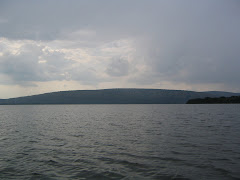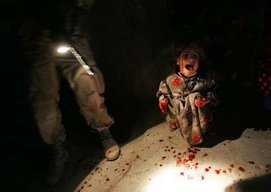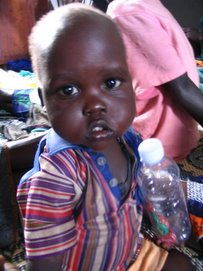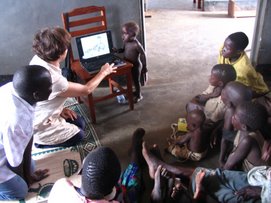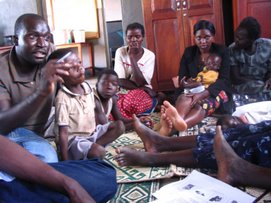Omera Otunnu, I read with excitement the Daily Monitor report, “Otunnu starts familiarisation tour today”, published on August 24, indicating that you were ‘expected to meet supporters in Jinja, Tororo and Mbale before proceeding to northern and western Uganda’.
The last time, 29 years ago, when another Omera, Dr Milton Obote, landed in Bushenyi, his supporters, family and relatives said they were welcoming him back from his long trip to Singapore. Those who saw him close swore that he wept at this sight of semi-naked or rug-draped dancers who welcomed him.
May I also warmly welcome you back from your long peace talks with Yoweri Museveni, which took place in Nairobi in 1986? Like Obote did in July 1980, you will soon find out, if you have not already done so, that Uganda is a totally different country from the one you left 23 years ago. It is divided is four ways: by war, wealth, access to resources and law. Whereas the south and west have enjoyed peace and tranquillity, the north and east have been ravaged by war in which a million people may have lost their lives or are physically and psychologically maimed.
If, 23 years on, the damages of the five-year war are yet to be repaired, it is reasonable to conclude that it will take at least 100 years for the north and east to recover. Whereas about 5 per cent of Uganda’s 32m people are basking in wealth, living in houses that are comparable to the ones where you used to attend diplomatic receptions in Manhattan, New York, and enjoying the best lifestyle, education and medical services money can buy at home and abroad; the other 95 per cent are trapped in a dehumanising poverty, and dying at home for lack of medicine.
Whereas all Ugandans are entitled, as a right, to access the most lucrative government jobs in the army, police and the civil service, as well as business contracts; the majority are totally excluded.
From December 2005 to February 2006, during the last election campaigns, I personally organised a survey, which found that 1.75 million people from the north and east, holding university degrees and other professional qualifications, were unemployed.
And whereas there is one law that protects local and international criminals, such as the ones who invaded and looted the DRC; stole GAVI and Global Fund; murdered innocent Ugandans in corner Kilak, Atiak Acol Bur in Acholi and Mukura in Teso; there is another law, which criminalises the innocent.
It was under this two-tracked law that on November 14, 2005, Dr Kizza Besigye was arrested and charged with rape, terrorism and treason, the last one punishable by death. Five years on, the government has not produced a scintilla of any treasonable acts. In that time, several of his “comrades-in-terrorism” have died in detention.
And it is under the same two-tracked law that some 1.8 Bakiga communities living in Bunyoro are looking at the abyss. It is against these bleak realities that I must ask you what you have planned to do and achieve within next 18 month before Uganda holds the next general elections before March 2011.
To concentrate your mind on the time constrains before you, let me put this to you in a personal context. If you decide to reclaim the late Rev. Otunnu’s farm in Mucwini and start to prepare the plots to grow Gwana (cassava), Pull (groundnuts) Layata, (sweet potatoes), Malakwan, Kal (millet), none of these staple food items will have been ready to feed your campaign agents and prospective voters, should you decide to go to Parliament.
And, as a celebrated bachelor, should you decide to take an original bride, and have a baby, the only place to find one is in the Internally Displaced Persons (IDP) camps in Pabo, Kilak, Atiak and scores of other camps in Acholi, Lango and Teso sub-regions. Sadly, your child will be only nine months old in February 2011, too young to run any errand.
Just randomly pronounce the name “Acirocan” (I have endured poverty) in Acholi and Lango sub-regions, or “Acan” (poverty) in Teso; and literally thousands of prospective brides will surround you in no time!
If you asked for my advice on what to do in the next 18 months, I would strongly advise you to persuade the opposition to drastically scale down their list of demands for reforms to just one item: the Electoral Commission.
All other reforms would automatically fall in place once there is an independent Electoral Commission whose members have got not only the power to bar RDCs and other partisan government officials from acting as electoral officials from village to national levels; but also the courage of their conviction to tell the world, as Samuel Kivuitu, the former chairman of the Kenya Election Commission did, that he was ordered to change the presidential election figures.
I am quite certain that your incomparable legal mind and diplomatic skills have prepared you well enough to effectively contribute to free and fair elections in 2011.
Meanwhile, let us pray together as your beloved late father Rev. Otunnu would expect: “Oh God, please protect me against my friends in the opposition for I can avoid my enemies in the Movement!”


